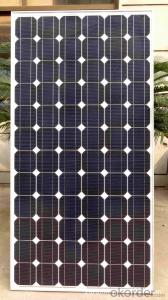Embarking on the open road, the call of adventure is hard to resist. For RV enthusiasts, the freedom of the highway is a siren song that beckons us to explore the unknown. But with this freedom comes a responsibility to sustain it. One of the most significant aspects of maintaining a sustainable lifestyle on the road is harnessing the power of the sun. Solar panels are a game-changer for RV travelers, offering a renewable source of energy that can keep your home on wheels running smoothly.
The Allure of Solar Power
The sun is a relentless source of energy, shining down on us every day without fail. For those of us who spend our lives in transit, it’s only natural to want to tap into this endless resource. Solar panels convert sunlight into electricity, providing a clean and efficient way to power your RV. They are not only environmentally friendly but also cost-effective in the long run.
Understanding Solar Panels
Before we dive into the specifics, it’s essential to understand what solar panels are and how they work. Solar panels, also known as photovoltaic (PV) panels, are made up of solar cells that absorb photons from sunlight and convert them into direct current (DC) electricity. This DC electricity is then converted into alternating current (AC) electricity, which is the type of power we use in our homes and RVs.
Components of a Solar System
A complete solar power system for your RV consists of several components:
– Solar Panels: The heart of the system, capturing sunlight and converting it into electricity.
– Charge Controller: Regulates the voltage and current coming from the solar panels to ensure a safe and efficient charge.
– Inverter: Converts DC power from the solar panels and batteries into AC power for your RV appliances.
– Batteries: Store the energy produced by the solar panels for use when the sun isn’t shining.
– Mounting System: Secures the solar panels to your RV, ensuring they are positioned to capture the maximum amount of sunlight.
Sizing Your Solar System
One of the most critical steps in setting up a solar system for your RV is determining the right size. This involves calculating your energy needs and matching them with the right combination of solar panels, batteries, and other components. Consider factors such as:
– Your daily energy consumption
– The size and type of solar panels available
– The amount of sunlight you expect to receive while traveling
– The number of batteries and their capacity
Choosing the Right Solar Panels
With a variety of solar panels on the market, choosing the right ones can be overwhelming. Here are some factors to consider:
– Efficiency: Higher efficiency panels will produce more power in the same amount of space.
– Durability: Look for panels with sturdy construction and a long lifespan.
– Weight: Since weight affects your RV’s fuel efficiency, lighter panels are generally more desirable.
– Cost: Solar panels can vary greatly in price, so find a balance between quality and affordability.
Installation Considerations
Installing solar panels on your RV can be a DIY project or a professional job, depending on your comfort level and expertise. Some considerations include:
– Space: Ensure you have enough space on your RV for the panels without obstructing movement or ventilation.
– Angle: Position the panels at an optimal angle to capture sunlight, which is typically between 30 to 40 degrees.
– Shading: Minimize shading from trees, buildings, or other obstructions that can reduce solar power output.
Maintenance and Care
Proper maintenance of your solar panels is crucial for their longevity and performance. This includes:
– Regularly cleaning the panels to remove dust, dirt, and bird droppings.
– Checking for any physical damage or wear.
– Ensuring the wiring and connections are secure and free from corrosion.
Going Off-Grid with Solar
For those who dream of a life completely independent from the grid, solar panels can be the key. By pairing your solar system with a robust battery bank, you can store enough energy to power your RV for days without needing to recharge. This is particularly useful for boondockers and those who enjoy remote locations.
The Financial Perspective
While the initial investment for a solar system can be steep, the long-term savings are significant. Not only do you save on fuel costs from reduced idling, but you also reduce your reliance on diesel generators or shore power. Over time, the cost of your solar system can be recouped through these savings.
The Joys of Solar Living
Living with solar power in your RV brings a sense of satisfaction that comes from knowing you’re minimizing your environmental impact while enjoying the freedom of the road. It’s a lifestyle choice that many find deeply rewarding.
Wrapping Up
Solar panels are an incredible asset for RV enthusiasts looking to embrace a sustainable and self-sufficient lifestyle. With the right knowledge and planning, harnessing the sun’s energy can power your adventures for years to come. So, hit the road with confidence, knowing that the sun is on your side.

